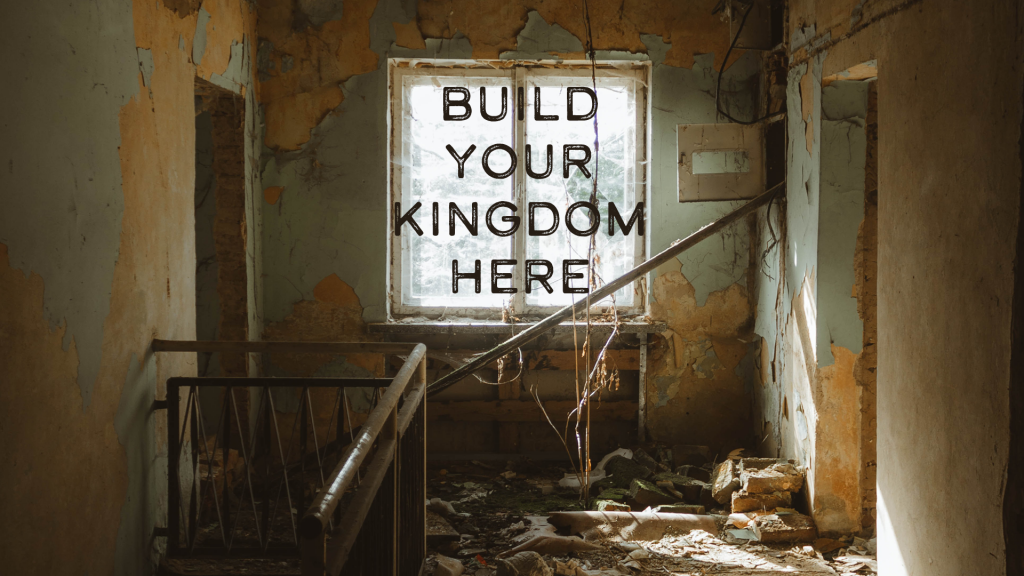Passage: Haggai 2:20-23
Guide for Group Discussion or Personal Reflection
Sermon Summary
The pressing question at the close of Haggai is a question of worship: “Is the God of the temple worth worshipping? What kind of power does he have, after all?” Zerubbabel, the Governor of Judah, was likely wondering this. By all appearances, God must have seemed quite weak: Israel had no king, its lackluster temple remained unfinished, and his own governorship was subservient to Persia. In all of this, God hardly seemed like a powerful God worthy of worship and service.
Into this doubting, “The word of the Lord came a second time to Haggai” (2:20). God wanted Zerubbabel to know that he would soon “shake the kingdoms of the heavens and the earth” (2:21) and “destroy the strength of the kingdoms of the nations” (2:22). Indeed, every nation that seemed so impressive at that time would soon be overthrown, for they were far more fragile than they appeared, and they contained the seeds of their own destruction. Today, we too need to ask ourselves what kingdoms we are trusting and investing in—whether our career, our families, our reputation, or even a certain cause or leader—realizing that every kingdom other than God’s will ultimately fail.
Finally, God promises to establish his unshakeable kingdom by taking Zerubbabel, his “servant” (OT messianic language) and making him “like a signet ring” (2:23)—an emblem of authority. Zerubbabel himself was only a partial fulfillment of this promise, as he never ended up becoming king, even fading into relative obscurity. But this promise looks forward to Christ, who was God’s chosen servant, his ultimate authority. In the end, God will establish his kingdom on earth through Christ. Only his kingdom is unshakeable. We need to choose, then, which kingdom we will serve.
Sermon Outline
- God Shakes the Kingdoms of the World (2:20-22)
- God Establishes His Unshakeable Kingdom (2:23)
Group Discussion & Personal Reflection Guide
Re-read the passage (Haggai 2:20-23)
God Shakes the Kingdoms of the World (2:20-22)
Q) Re-read Haggai 2:20-23 and meditate on these verses together. Consider:
- What did God promise to do?
- What words or phrases does God use to describe the strength or force with which he would shake the nations? What do these words communicate about God’s character?
- How easy or difficult do you think it would have been for Zerubbabel to believe in this promise at the time? Why?
Q) In verse 23, Haggai prophesies that “the horses and their riders will go down, every one by the sword of his brother”. Melissa mentioned that this verse teaches the principle that all other kingdoms will eventually self-destruct. Where have you seen this truth illustrated, either in your life or in history—that every kingdom not built on Christ will ultimately self-destruct?
Q) In the sermon, Melissa said that we need to ask ourselves the question: “Are we trusting in something that is shakable?” Has the pandemic (or even this past year in general) revealed an area of your life where you were trusting in something “shakable”? What was it? What would it look like to repent and trust in God instead in this particular area of your life?
Further questions for reflection:
- What makes you angry or anxious when it’s threatened or disturbed?
- What do you worry about or daydream about the most?
- How do you spend your time, invest your money, use your resources?
- If you’re on social media, what do you post about most on social media?
God Establishes His Unshakeable Kingdom (2:23)
Q) Re-read Haggai 2:23. What did God promise to do for Zerubbabel and why did he promise to do this? What did the “signet ring” signify?
Q) In the sermon, Melissa mentioned that this promise was only partially fulfilled in Zerubbabel, who eventually faded into obscurity, but that the language of being “my servant” and of being “chosen” is language that throughout the OT is used in reference to the coming Messiah, and the Davidic King. How is Jesus, then, the ultimate fulfillment of God’s promise to Zerubbabel?
Q) Skim back over the whole passage. How much of this promise will Zerubbabel carry out and how much will God himself carry out? What does this tell us about who we should rely on?
Q) What are some barriers make it hard for you to trust fully in God and the unshakeable kingdom he is setting up? What would it look like for you to trust him freshly?
Additional Application Questions
Q) How else would you like to engage with God this week?
Q) How can you tangibly care for those in your community this week, both inside and outside of the church?
Prayer
Spend time praying for yourselves, our church community, the North Shore community, and our nation and world—particularly those most vulnerable.

